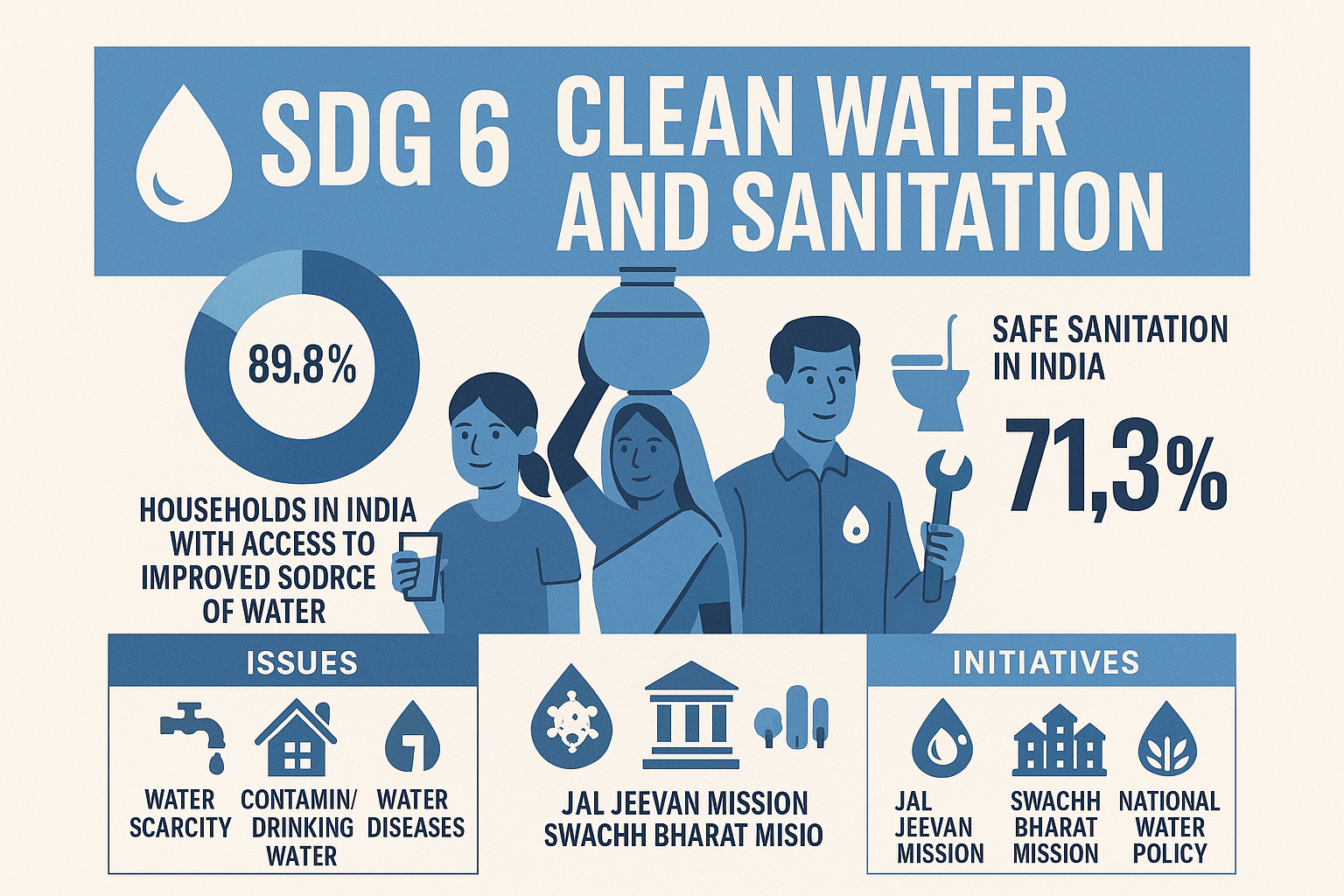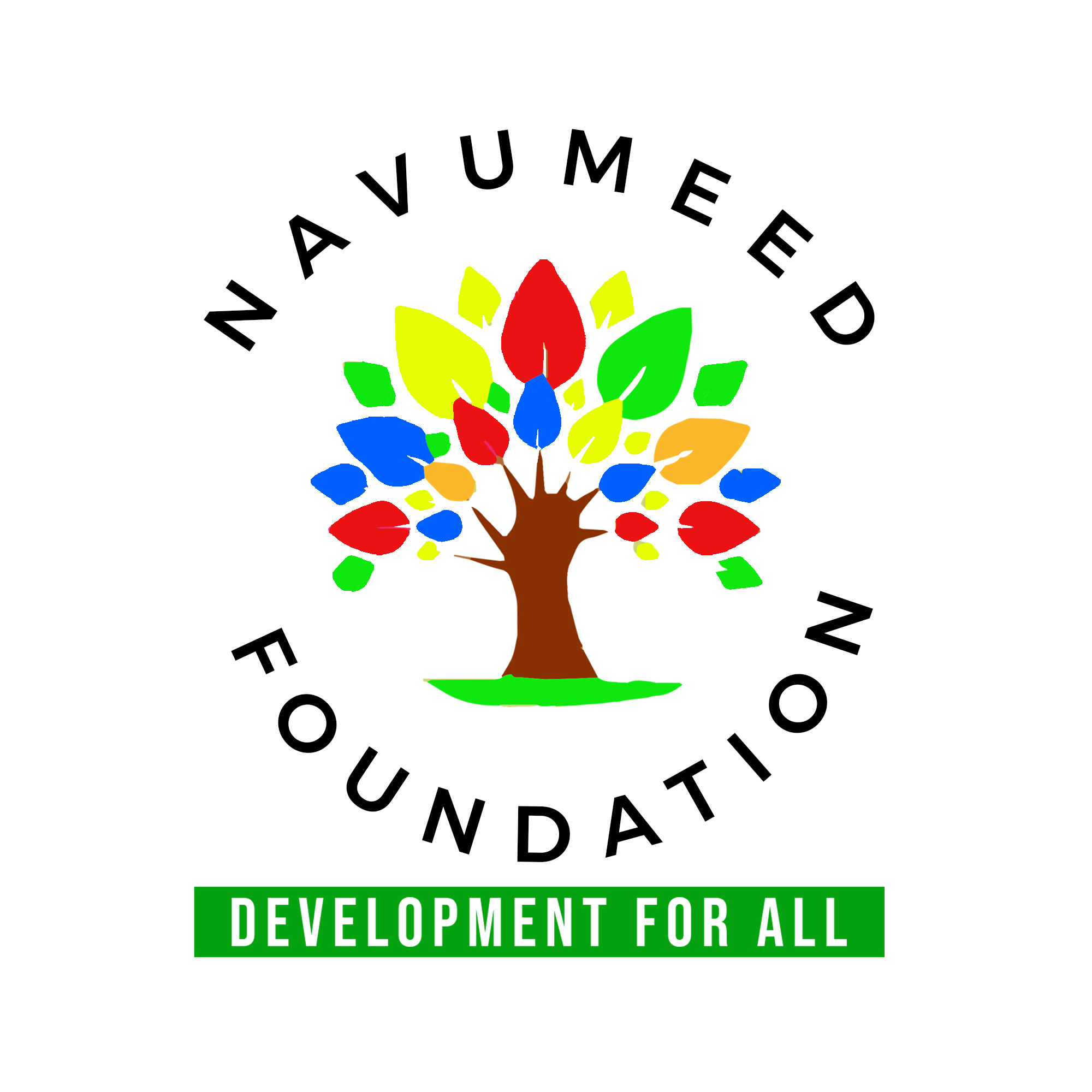
“Ensure availability and sustainable management of water and sanitation for all”
Access to safe drinking water and adequate sanitation is essential for public health, education, and dignity. While programs like Jal Jeevan Mission have accelerated progress, India still faces major challenges:
Over 600 million Indians face high to extreme water stress.
70% of surface water is contaminated.
Nearly two-thirds of rural households lacked piped water connections as of 2020.
Open defecation, though declining, remains a concern in remote areas.
Water-related diseases account for nearly 21% of communicable diseases in India.
Women and girls, especially in rural India, bear the brunt — walking long distances to fetch water, risking safety, and missing school due to lack of menstrual hygiene facilities.
Our water and sanitation interventions are community-led and climate-conscious:Awareness campaigns on safe water use, handwashing, and hygiene
Installation of bio-toilets and community toilet blocks in underserved areas
Rainwater harvesting and greywater recycling pilot projects in rural schools
Distribution of low-cost water purification tools
Training village youth as Jal Suraksha Volunteers
Advocacy for gender-sensitive WASH (Water, Sanitation, and Hygiene) policies
Awareness campaigns on safe water use, handwashing, and hygiene
Installation of bio-toilets and community toilet blocks in underserved areas
Rainwater harvesting and greywater recycling pilot projects in rural schools
Distribution of low-cost water purification tools
Training village youth as Jal Suraksha Volunteers
Advocacy for gender-sensitive WASH (Water, Sanitation, and Hygiene) policies
